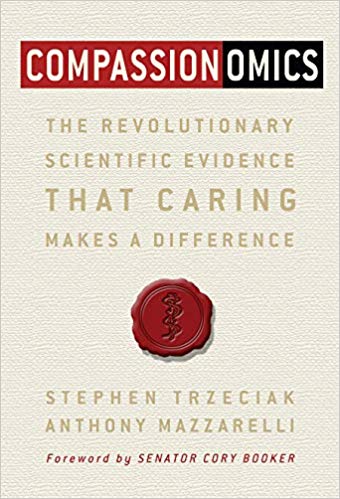The 10 best books published in 2019 that I read during the month of May are

- (5.0) Compassionomics: The Revolutionary Scientific Evidence that Caring Makes a Difference by Stephen Trzeciak and Anthony Mazzarelli (Studer Group, 2019)
- (4.5) Love Big: The Power of Revolutionary Relationships to Heal the World by Rozella Haydée White (Fortress Press, 2019)
- (4.5) Engage!: Tools for Ministry in the Community by Dana Horrell (Fortress Press, 2019)
- (4.5) Sustaining Hope in an Unjust World: How to Keep Going When You Want to Give Up by Timothy Charles Murphy (Chalice Press, 2019)
- (4.5) Learning to Lead: The Journey to Leading Yourself, Leading Others, and Leading an Organization by Ron Williams (Greenleaf Book Group Press , 2019)
- (4.5) Beating Guns: Hope for People Who Are Weary of Violence by Shane Claiborne and Michael Martin (Brazos Press, 2019)
- (4.0) 4D Impact: Smash Barriers Like a Smart Church by Olu Brown (Abingdon Press, 2019)
- (4.0) How the Body of Christ Talks: Recovering the Practice of Conversation in the Church by C. Christopher Smith (Brazos Press, 2019)
- (4.0) How Change Happens by Cass R. Sunstein (The MIT Press, 2019)
- (3.5) Re-membering God: Human Hope and Divine Desire by Tobias Stanislas Haller (Church Publishing, 2019)
So What?
I typically share a bit about the top few books. This month, however, I have more volumes rated a 4.5 than ever before. While I highly recommend all of them to you, I’ll focus my remarks on the only book rated 5.0.
America has long been a world leader in many areas. For healthcare, however, we only lead in cost per capita to deliver healthcare services: $10,000 a person a year. Despite spending more money than any other nation on a per capita basis, our health outcomes are not world class.
Stephen Trzeciak and Anthony Mazzarelli’s new book Compassionomics: The Revolutionary Scientific Evidence that Caring Makes a Difference is a groundbreaking effort that addresses one of the many problems in healthcare today: declining compassion. The use of the word revolutionary in the subtitle is not an overreach as the physician researcher authors consider wide ranging research on the topic in order to highlight the current compassion gap while also urging everyone involved in delivering healthcare to commit to becoming more compassionate.
In short, there is no downside to increased compassion. Increased compassion improves patient outcomes, decreases burnout in those providing care, and reduces cost.